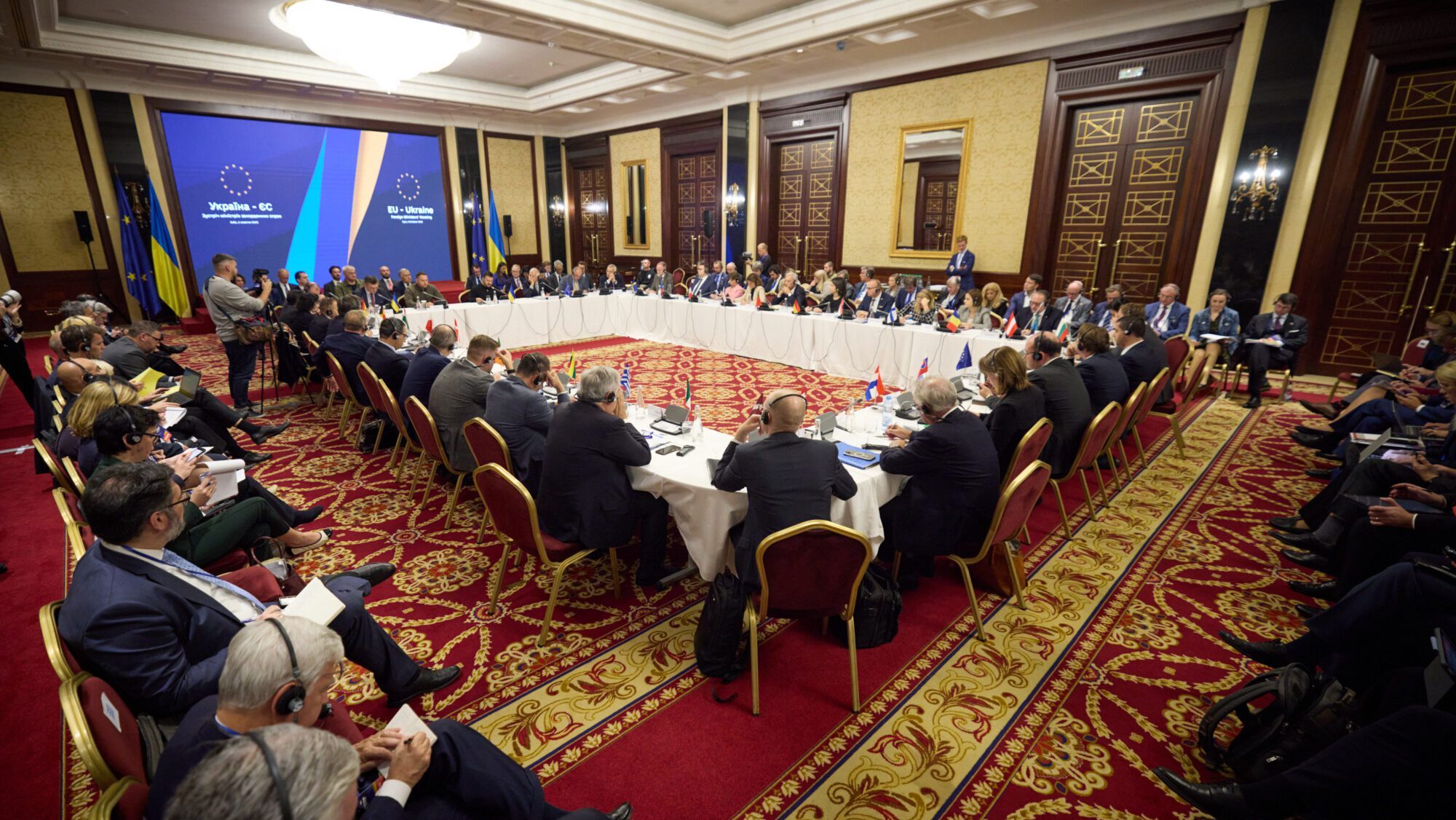
Photo: President of Ukraine official website
Foreign ministers and other representatives from EU member states—with Hungary and Poland as notable absentees—met in the Ukrainian capital of Kyiv on Monday, October 2nd.
In what was its first such meeting on Ukrainian territory since the Russo-Ukraine war started in 2022, the bloc intends to convey its unwavering solidarity with the nation—but its unity is starting to show some cracks.
We are convening a historic meeting of EU Foreign Ministers here in Ukraine, candidate country and future member of the EU.
— Josep Borrell Fontelles (@JosepBorrellF) October 2, 2023
We are here to express our solidarity and support to the Ukrainian people.https://t.co/zcv6agCcIy
The unannounced visit comes at a time when long-term Western support for Kyiv appears in doubt. The need for symbolic gestures—no matter the cost of getting the foreign ministers, their entourage, and security detail there—has therefore become greater.
In one weekend, Kyiv watched in dismay as the U.S. House of Representatives failed to approve a stopgap funding bill for Ukraine, while in Slovakia—Ukraine’s neighbor and one of its staunchest allies in terms of supplying weapons—Robert Fico, an opponent of further military aid, won the election.
“We don’t feel that the U.S support has been shattered … because the United States understands that what is at stake in Ukraine is much bigger than just Ukraine,” Ukraine’s Foreign Minister Dmytro Kuleba told reporters before meeting with the EU’s chief diplomat Josep Borrell.
With also the solidly pro-Ukrainian Poland recently putting a stop to weapons deliveries to its neighbor, the country’s list of unconditional supporters is shrinking.
These political setbacks come at a time when Ukraine is already contending with a counteroffensive that thus far has delivered no real gains.
Kremlin spokesman Dmitry Peskov said on Monday that while the U.S. funding hiccup was but “a temporary phenomenon” and that Washington, Ukraine’s biggest financial and military backer by far, would clearly continue what he called its direct involvement in the conflict, “fatigue from the completely absurd sponsorship of the Kyiv regime, will grow in various countries, including the United States.”
Also on Monday, White House spokeswoman Karine Jean-Pierre claimed it would “soon” have another package of aid for Ukraine “to signal our continued support for the brave people of Ukraine.” If [Russian President Vladimir] Putin “thinks he can outlast us, he’s wrong. He’s wrong,” she emphasized.
If Josep Borrell is to be believed, the bloc’s support for Ukraine is as unshakeable as ever.
In a press conference with Ukrainian Foreign Minister Dmytro Kuleba, he said the country’s future EU membership was an all-or-nothing affair, and that Monday’s joint meeting of the EU foreign ministers “should be understood as a clear commitment of the European Union to Ukraine and its continued support in all dimensions.”
Borrell told reporters that he had proposed an EU spending package for Kyiv of up to €5 billion for 2024 which he hoped to have approved by then.
Previously, some EU dignitaries, including European Parliament President Roberta Metsola, had suggested that Ukraine could be granted access to the EU’s internal market first before becoming a full-fledged member—a process that could take years.
For Borrell, however, time is not to be wasted. When asked on the matter by a reporter, he responded: “Who has talked about partial membership, half membership, 25% membership? Membership is membership, full stop.”
